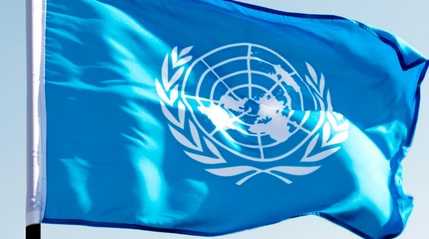
UNITED NATIONS, Jun 21 (APP): The number of school-aged children requiring educational support living in several crisis impacted countries, including Pakistan, has grown from an estimated 75 million in 2016, to 222 million today, a new UN report released Tuesday revealed.
The UN global fund for education in emergencies and protracted crises, Education Cannot Wait (ECW), outlines that of those 222 million girls and boys, as many as 78.2 million are out of school, and close to 120 million, who are in attendance, are not achieving minimum proficiency in math or reading.
In fact, just one in ten crisis-impacted children attending primary or secondary education are actually meeting proficiency standards, the report said.
Around the world, 222 million children are losing out essential classroom time. Their dreams for the future are being snatched away by conflicts, displacement, and climate disasters.
“In the face of these crises, the UN’s fund for education in emergencies –Education Cannot Wait – is standing with children across 40 countries,” Secretary-General Antonio Guterres said in a message.
“We need governments, businesses, foundations and individuals to support the vital work of Education Cannot Wait.”
The analysis indicates that 84 per cent of the children losing out on school, are living in areas with protracted crises.
And the vast majority are in countries specifically targeted through ECW’s ground-breaking multi-year investments, including Pakistan, Afghanistan, Democratic Republic of the Congo, Ethiopia, Mali, Nigeria, Somalia, South Sudan, Sudan and Yemen.
From inside makeshift refugee settlements, the damaged walls of classrooms, and communities torn apart by war and disaster, millions of vulnerable children are desperately holding on to the hope that education will allow them to realize their dreams of becoming a doctor, engineer, scientist, or teacher.
Their need has never been greater, nor more urgent, said ECW.
Initial analyses also suggest that COVID-19-induced learning losses are more pronounced amongst the poorest and those who were already lagging behind in terms of learning prior – two categories that typically include children in crises.
Together with strategic partners, ECW’s collective commitment is to uphold crisis-affected children’s fundamental inherent right to equitable, inclusive, quality education by providing them with learning opportunities, including whole-of-child, holistic learning approaches to help them overcome the specific challenges they face amidst crises and achieve learning outcomes.
Looking ahead to September’s Transforming Education Summit, the UN chief said the fund’s “ideas and innovations,” are essential and urged everyone to help “place education within reach of every child, everywhere”.
To respond to this pressing global education crisis, ECW and strategic partners launched a #222MillionDreams resource mobilization campaign in Geneva.
While already delivering quality education to over five million children across more than 40 crisis-affected countries, the campaign calls on donors, philanthropic foundations and high-net-worth individuals to urgently mobilize more resources to scale up ECW’s investments.
“Help us keep 222 million dreams alive,” Guterres, the UN chief, said.
Gordon Brown, UN Special Envoy for Global Education and Chair of ECW’s High-Level Steering Group, called for more financial resources “to ensure that every child and young person can receive a quality education exist in the world”.
“Governments, private sector and foundations can and must unlock these resources.”
While the world struggles with the devastating impacts of armed conflicts, COVID-19 and climate change, 222 million children live through these horrific experiences.
“This is a global call to action,” ECW Director Yasmine Sherif said, highlighting the campaign that will lead up to the Education Cannot Wait High-Level Financing Conference next year, from 16 to 17 February in Geneva.
“It is our duty to empower them through education and help make their dreams come true.”




